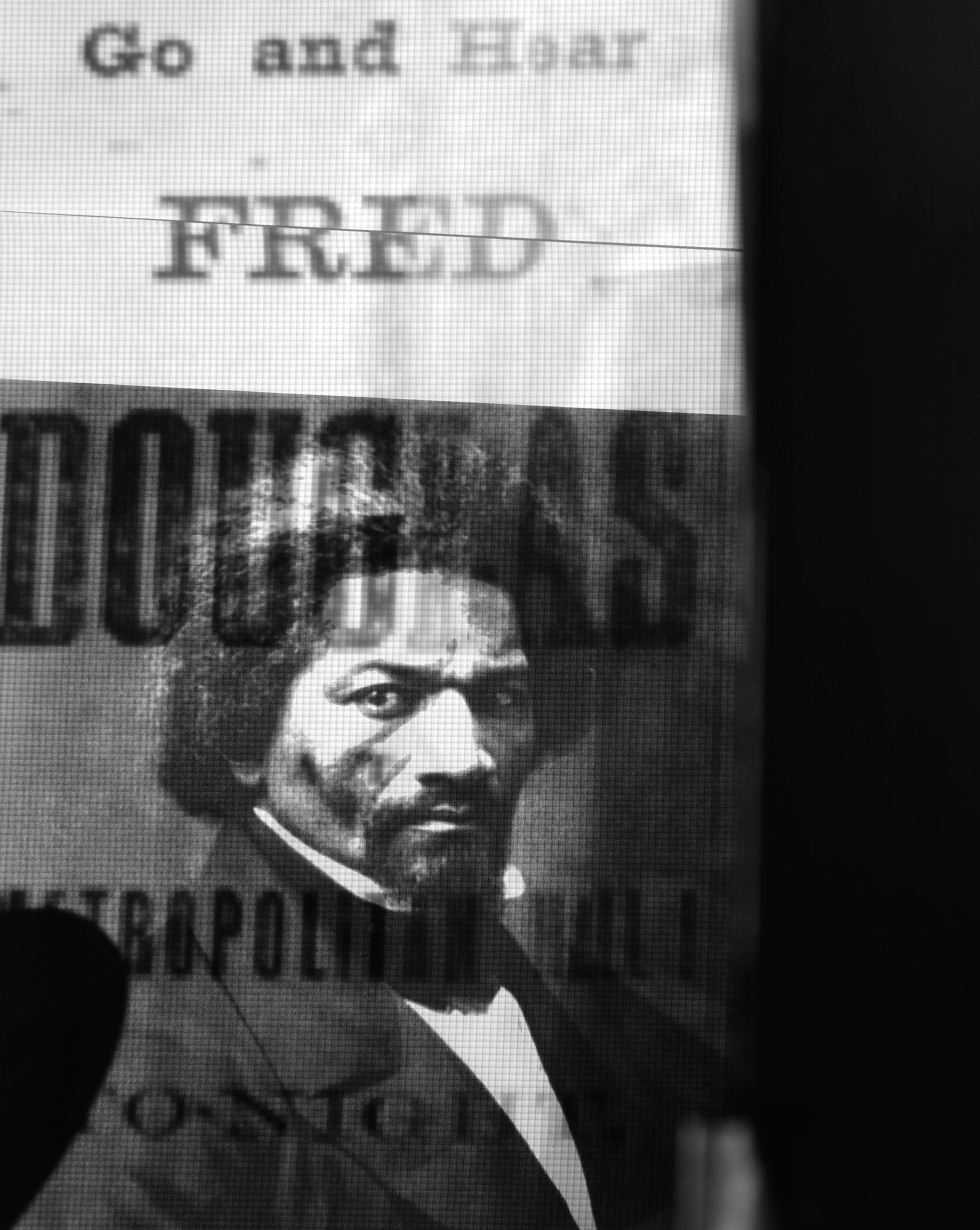The Annotated Frederick Douglass

In his third autobiography, Life and Times of Frederick Douglass, while reflecting on the end of the Civil War, Douglass admitted that "a strange and, perhaps, perverse feeling came over me." Great joy over the ending of slavery, he wrote, was at times "tinged with a feeling of sadness. I felt I had reached the end of the noblest and best part of my life; my school was broken up, my church disbanded, and the beloved congregation dispersed, never to come together again.” In recalling the postwar years, Douglass drew from a scene in a Shakespearean tragedy to express his memory of that moment: "Othello's occupation was gone.' In Othello, Douglass perceived a character, the former high-ranking general and "moor of Venice," who had lost authority and professional purpose. Douglass harbored a special affinity for this most famous Black character in Western literature, whose mental collapse and horrible end lingered as a warning in a famous speech: "O, now, for ever / Farewell the tranquil mind! Farewell content!"
In 1866, Douglass took up his pen to try to capture this mome of transformation, both for himself and for the United States. For the December issue of this magazine that year, in an essay simply titled "Reconstruction," Douglass observed that "questions of vast moment" lay before Congress and the nation. Nothing less than the essential results of the "tremendous war," he writes, were at stake. Would the war become "a miserable failure ... a scandalous and shocking waste of blood and treasure," or a "victory over treason," resulting in a newly reimagined nation "delivered from all contradictions and based loyalty, liberty, and equality"? In this inquiry, Douglass's new role as a conscience of the country became clarified. His leadership had always been through words and persuasion, written and oratorical. How, now that the war was over, would he employ his incomparable voice?
Esta historia es de la edición December 2023 de The Atlantic.
Comience su prueba gratuita de Magzter GOLD de 7 días para acceder a miles de historias premium seleccionadas y a más de 9,500 revistas y periódicos.
Ya eres suscriptor ? Conectar
Esta historia es de la edición December 2023 de The Atlantic.
Comience su prueba gratuita de Magzter GOLD de 7 días para acceder a miles de historias premium seleccionadas y a más de 9,500 revistas y periódicos.
Ya eres suscriptor? Conectar

Fast Times and Mean Girls
What the great teen movies tell us about American adolescence
The TALENTED MR.VANCE
J. D. Vance could have brought the country's conflicting strands together. Instead, he took a divisive path to the peak of power.

THE WORLD’S HARDEST BLUFFING GAME
Why are some Iraqis so good at figuring out when a person is lying?
WITNESS
Sin and redemption in America's death chambers
The Clones Are Here
Faster horses, superior cattle, immortal pets the big business of animal cloning

The Canonization of James Joyce
Richard Ellmann's biography made the novelist a hero to generations of readers and scholars.

FEUDALISM IS OUR FUTURE
We may already be entering anew dark age.

When Mick Jagger Met the King of Zydeco
Clifton Chenier pioneered a new kind ofblues—and changed rock history, too.

THE Tracy Anderson WAY
INSIDE THE EXCLUSIVE, OBSESSIVE, SURPRISINGLY LITIGIOUS WORLD OF LUXURY FITNESS

The Secret to Happiness
Alison Bechdel has spent a lifetime worrying. In a new graphic novel, she finds something like solace.
